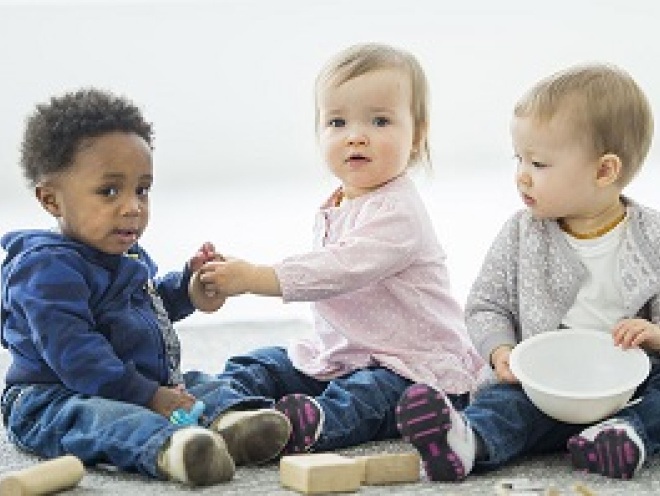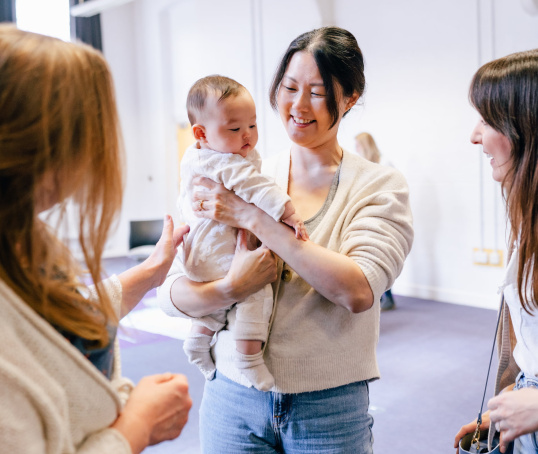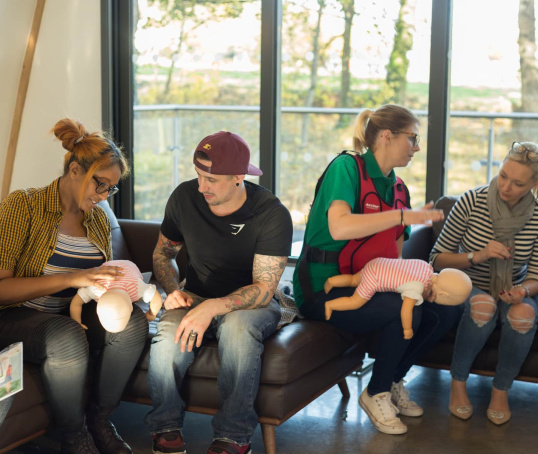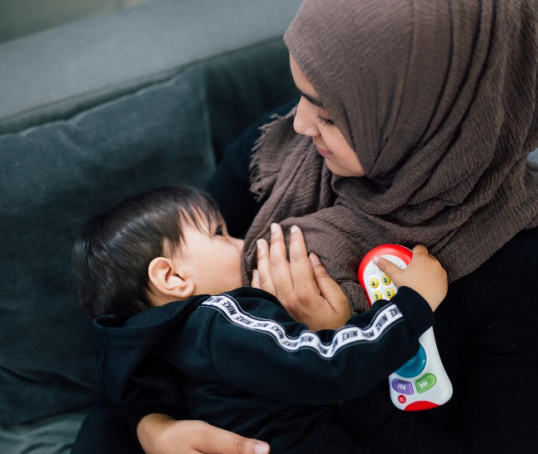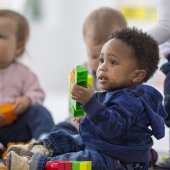Childcare comes in all shapes and sizes so you will find something that suits your family. Read on for more about your options and what to consider.
Types of childcare
Childminders
Childminders are self-employed and usually take care of children in their own home. They are registered with Ofsted in England; the Care Inspectorate in Scotland; and in Wales, the Care and Social Services Inspectorate Wales (CSSIW).
Children’s centres
Children’s centres are a ‘one-stop-shop’ for families. They have facilities to support early education, childcare, health, family support and help into employment (for parents and carers). Childcare facilities vary.
Day nurseries
Day nurseries care for babies and children until they start school. Different types include private, community, local authority and workplace nurseries.
Pre-school playgroups
Less formal than nurseries, these groups operate for a few hours each day. They tend to be run by private individuals or charities. Parents may be asked to volunteer.
Crèches
Crèches provide ‘occasional care’ at gyms, shopping centres and similar premises.
Nannies
A nanny is someone who is typically paid to look after a child (or children) in the home of the child. They can either live-in or live-out, depending on their arrangement with the family.
Au pairs
These are generally students from outside the UK. You need to provide them with a bedroom, meals and pocket money.
Informal childcare
This is usually a member of your family – often a grandparent.
What should I consider when choosing childcare?
Here are some factors you might like to consider:
- Would you rather have childcare in your own home or not?
- If elsewhere, how far can you travel each morning?
- Would it be easier to arrange the childcare nearer to home or your workplace?
- What if you’re delayed at work? Do you have a back-up plan in place?
- Could you get to your child quickly in an emergency?
- Will your chosen method of childcare qualify for financial help with childcare costs: Working Tax Credit, Universal Credit, Tax-Free Childcare?
- If you ask a family member to help, will they have to reduce their working hours to fit in with yours? This may initially look like a ‘cheaper’ option. But you would not be given any financial assistance and may be expected to pay for necessary equipment, e.g. car seats and stair gates. Will they provide care in your home or theirs? You need to think about illness and holidays too.
- Is there a clear fee structure? Will this include meals, snacks, nappies and days out?
- Do they have a notice period if you wish to change your childcare arrangements?
In addition, depending on the childcare you choose, it's worth considering:
- How is positive behaviour reinforced? How is negative behaviour discouraged?
- Does the carer have extensive experience of working with babies or children of a similar age to your child?
- How qualified are the staff?
- What is the staff turnover?
- What is the ratio of carer to children? For children aged two years and under, it should be no less than one adult to three children.
- Has your carer completed a course in baby first aid?
- How frequently are environmental risks assessed?
- What are the sleeping arrangements and how are they monitored?
- How will you be kept informed on your baby’s progress?
- What sort of safety measures are in place for when carers take your child out for walks and trips to the park?
A big factor in deciding on childcare will, of course, be cost. Why not use the cost of childcare calculator here to estimate how much you might spend on different options?
What happens to my childcare in the case of holidays and sickness?
It would be helpful to think about holidays and whether your choice of childcare is available all year round.
- Is your childcare flexible? Do you need it to be?
- Will your child be taken care of if your working day overruns?
- What happens if you take your child out to go on holiday?
- Is the childcare year round? Including during the school holidays?
- Would you be expected to co-ordinate your holidays with your childminder?
- What will happen if your baby is sick. Do you have arrangements in place if they can’t go to childcare?
- If the carer is sick what will happen?
This page was last reviewed in September 2017.
Further information
Our support line offers practical and emotional support with feeding your baby and general enquiries for parents, members and volunteers: 0300 330 0700.
We also offer antenatal courses which are a great way to find out more about pregnancy, labour and life with a new baby.
Make friends with other parents-to-be and new parents in your local area for support and friendship by seeing what NCT activities are happening nearby.
